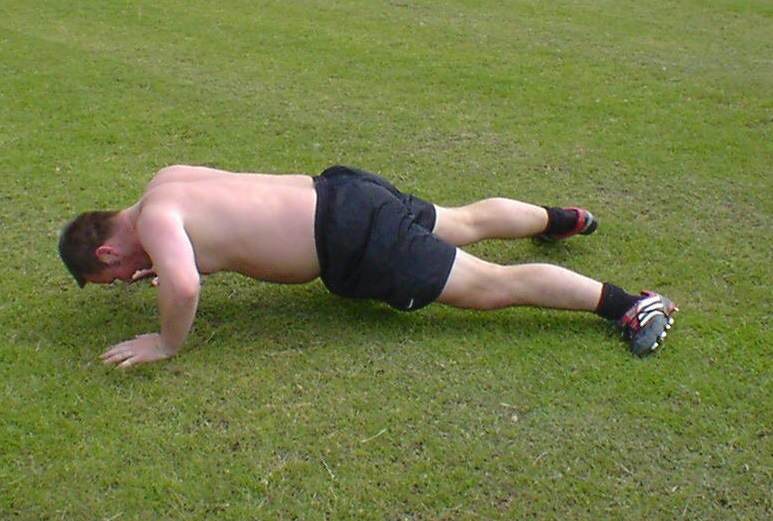Interesting article supplied by a freelance writer below:
 Out of Season Conditioning
Out of Season Conditioning
With the season drawing to a close and the intensity of a long season being all but over, it is important for players to establish a closed season fitness program to ensure that they maintain the high level of fitness they have built up during the past eight months. Both individually and as a team, if you want to achieve a lot next season, training should not be something which you forget about until next September, as you will be seriously out of shape by then, and you will spend the first two months of the season lagging behind those teams who have spend the summer working hard.
Personal Responsibility
We all know what it is like for amateur teams when it comes to training sessions and organization over the summer break, which is why it is most important that you take responsibility for your own training first and foremost. Take PRIDE (Personal Responsibility In Developing Excellence) in your fitness levels, and set up your own program for maintaining fitness. If the team also does this during off season training then even better, but it is not enough to rely solely on attending team training sessions once or twice a week.
First and foremost, if you are carrying a niggling injury from the season, it is important to ensure that you give it time to rest and do not aggravate it by putting too much pressure on it. If you have knee or ankle problems, avoid running too much and try cycling, rowing, or swimming instead, as this will build strength without too much impact on the joints. If you do not have any injuries carried over from last season, there is no excuse for slacking off, except for maybe giving yourself a two week break from everything and having a well deserved rest.
Fitness Drills
By focusing on your own personal fitness, you can excel during pre season training and hit the ground running come the start of the season, but it does require a large amount of dedication as it involves a lot of hard work and discipline to keep pushing yourself. It is a good idea to find a team mate to train with, or if you have a particularly dedicated team, a whole group of you as this will keep you motivated.
Interval training is one of the simplest, yet most effective ways of reaching a high level of fitness, providing you put in the maximum amount of effort whilst training. Many interval training drills you will already be familiar with, and although not the most exciting of exercises – they work! If you have a training partner you can make it more exciting by racing each other and setting targets to beat.
If you are training at the football pitch, there are a few great drills to do:
Start at the goal line and then sprint out to each progressive line, and jog back, starting with the 6 yard line, 18 yard box, centre circle, half way line, other halfcentre circle, other 18 yard box, other half 6 yard box, and far goal line. Do this as hard as you possibly can, and then rest whilst your training partner does the same, when they have finished, you start again! Repeat this three times, at the start of your session and you will feel the benefits within a couple of weeks. There are lots of great online resources that can help you to devise a great pre-season training program, so there are no excuses!
The most important thing is that you devise a plan, and you stick to it throughout the summer. If you are nursing an injury then just do what you can, but don’t overdo things. Rest and recuperation after the season has ended is also very important for your long term health and fitness levels. If you are getting to an age where your hair is beginning to fall out, a rest period is especially important, and a much less vigorous training program is advisable over the closed season as your body will take longer to recover. Swimming is an excellent out of season training exercise of those in the later stages of their football life as it is low impact. This does not mean that it has to be low intensity however, as you can carry out interval training in the pool to keep the cardiovascular fitness levels high.


